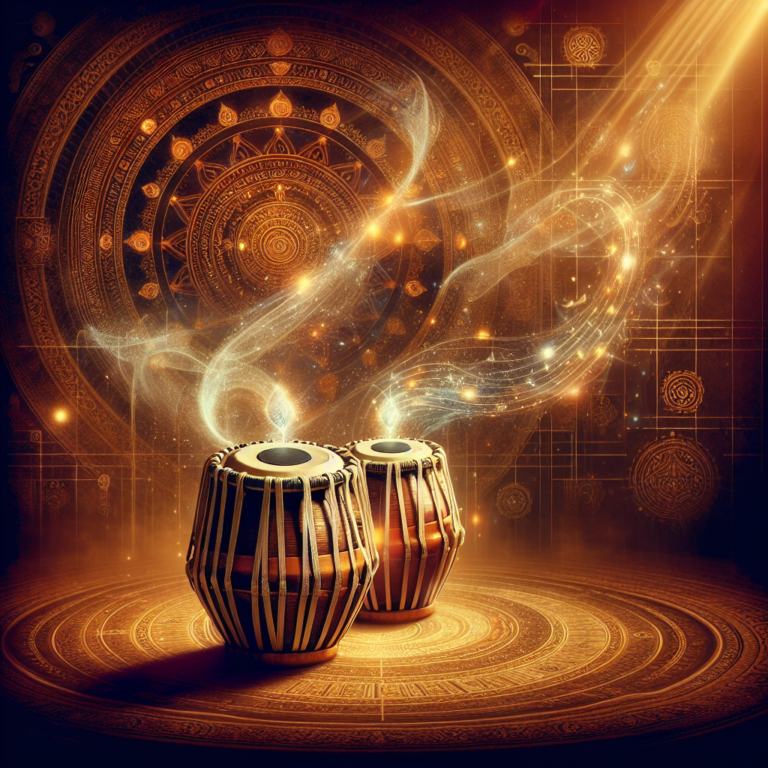In the rich tapestry of Indian culture, music holds a special place. From the divine hymns of the Vedas to the soul-stirring ragas of classical music, sound has always been seen as a powerful tool for spiritual connection and expression. Among the many instruments that play a pivotal role in Indian music, the tabla stands out as a symbol of tradition, skill, and spirituality.
The tabla, a pair of hand drums consisting of a small treble drum (dayan) and a larger bass drum (bayan), has been an integral part of Indian classical music for centuries. Its rhythmic patterns, known as tala, are considered the backbone of Indian music, providing a framework upon which musicians can improvise and create. The intricate patterns and subtle nuances of the tabla require years of dedicated practice to master, making it a highly respected instrument among musicians and music lovers alike.
But the significance of the tabla goes beyond its musical capabilities. In Indian culture, sound is believed to have a profound impact on the human psyche, with certain sounds and rhythms thought to have the power to evoke specific emotions or states of consciousness. The tabla, with its dynamic range and ability to mimic the complexities of human speech, is often seen as a conduit for spiritual expression.
In Hindu mythology, the sound of the tabla is linked to the primordial sound of creation, known as Om. According to ancient texts, the universe was created through the vibration of this sacred sound, and the tabla is seen as a way to harness that divine energy and connect with the cosmic forces that govern the universe.
In the context of Indian classical music, the tabla is also considered a form of meditation. The rhythmic patterns played on the drums are said to induce a trance-like state in both the performer and the listener, enabling them to transcend their physical surroundings and enter into a higher state of consciousness. In this way, the tabla becomes a tool for spiritual exploration, allowing musicians to delve deep into the mysteries of existence and connect with something beyond the material world.
The spiritual significance of the tabla can also be seen in its role in religious ceremonies and rituals. In temples and shrines across India, the tabla is often played during devotional singing and worship, creating an atmosphere of reverence and devotion. The rhythmic beats of the drums are believed to invoke the presence of the divine and help participants in their quest for spiritual enlightenment.
Overall, the tabla is much more than just a musical instrument in Indian culture. It is a symbol of tradition, skill, and spirituality, embodying the profound connection between sound and spirit that has been central to Indian philosophy for millennia. Whether played in a concert hall, a temple, or a private meditation session, the tabla continues to inspire and uplift listeners, connecting them to the timeless rhythms of the universe and the infinite possibilities of the human soul.

